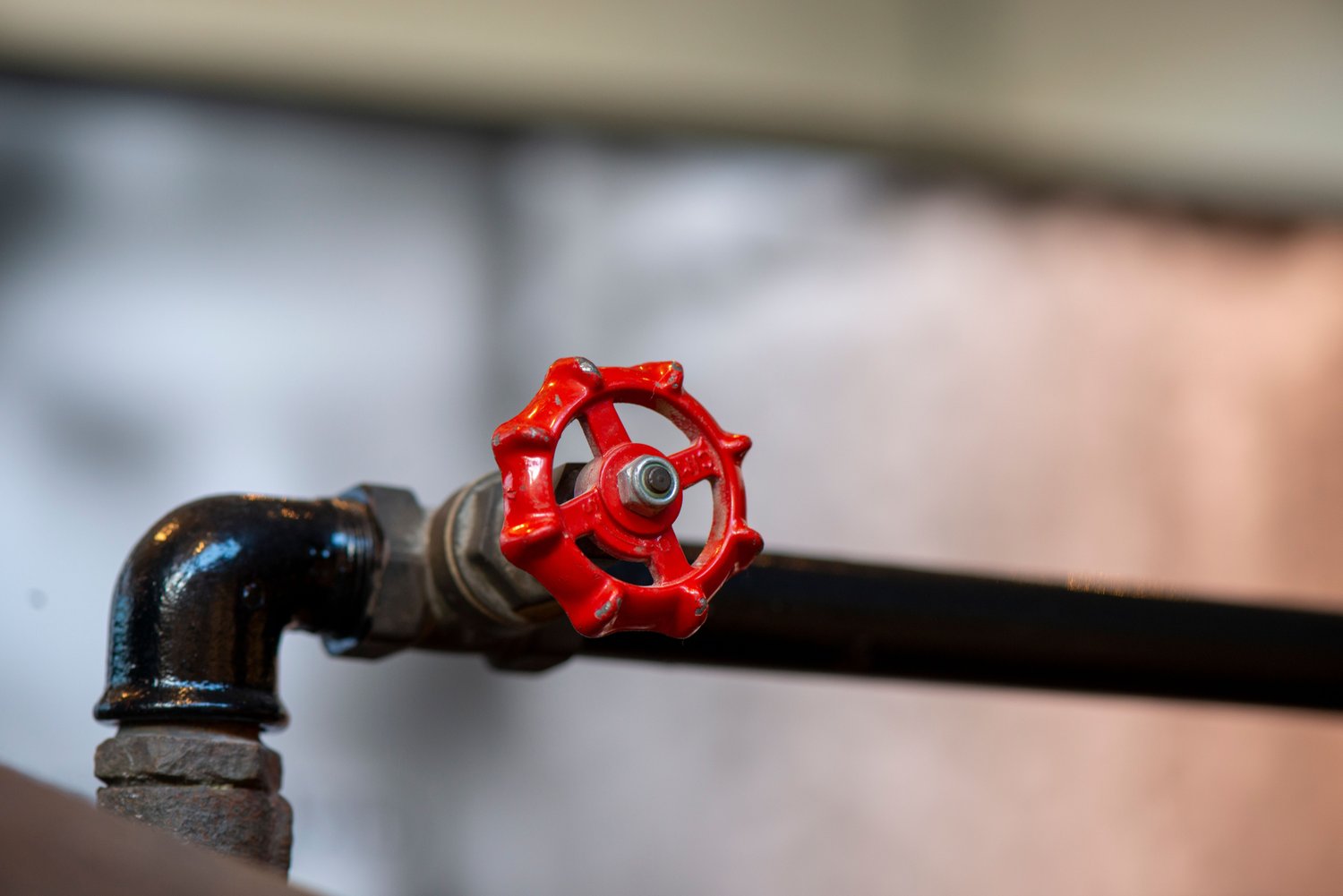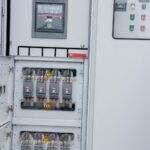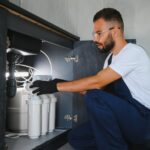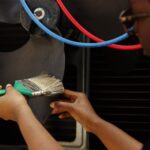Imagine this: you wake up on a Sunday morning, ready to enjoy a leisurely breakfast, only to find your lawn soaked from an overactive sprinkler system that just won’t turn off. A malfunctioning sprinkler not only wastes water but also disrupts your day and potentially spikes your utility bills. Understanding why this happens and how to swiftly address it can save both your sanity and your landscape.
- Discover the common causes behind a sprinkler system’s refusal to turn off, from electrical glitches to valve failures.
- Learn quick diagnosis techniques to identify and assess problems before they escalate further.
- Follow step-by-step emergency fixes that you can implement immediately to regain control over your system.
- Explore preventative maintenance strategies to keep your system running smoothly and forestall future issues.
Dive into this guide to equip yourself with the understanding and tools to tackle and prevent sprinkler system woes, ensuring your garden stays as lush and well-managed as you desire.
Common Causes: Why Won’t My Sprinkler System Turn Off? Emergency Solutions Guide
Finding your sprinkler system running continuously can be frustrating and wasteful. To address the issue effectively, it’s essential to understand the common causes that prevent your system from shutting off. These problems often revolve around electrical issues, valve malfunctions, or problematic timer settings.
Electrical issues may arise from faulty wiring or failed components within the control system. A short circuit or a burned-out relay might be responsible for keeping the system activated.
Valve malfunctions are another frequent culprit. If a valve is stuck open due to debris or mechanical failure, the sprinkler system won’t turn off as expected.
Incorrect timer settings or a malfunctioning timer can also lead to continuous operation. If the timing mechanism is improperly set or has encountered a technical glitch, it might not send the shut-off signal to the valve.
Quick Diagnosis Techniques to Identify Problems
To quickly identify why your sprinkler system is refusing to shut off, a systematic approach is crucial. Start by examining the control systems. Ensure that the electrical components are functioning correctly and that there are no tripped breakers or fuses interrupting the flow of power.
Next, inspect the valves. Manually operate them to check for proper function and see if they can open and close as needed. Look for any visible blockages or signs of wear that might indicate a mechanical issue.
Finally, verify the timer settings. Make sure that the system is programmed accurately for your intended watering schedule. Resetting the timer can sometimes resolve glitches that affect operations.
These quick diagnosis techniques can help you pinpoint potential problems swiftly and efficiently, allowing for immediate remedial action.
Step-by-Step Emergency Fixes: Why Won’t My Sprinkler System Turn Off? Emergency Solutions Guide
When faced with a sprinkler system that won’t turn off, acting quickly is essential to prevent water wastage and potential flooding. Follow these detailed steps to address the issue effectively:
1. Shut Off the Main Water Supply
Start by locating your home’s main water valve and turn it off. This stops the flow of water to the sprinkler system, preventing further overflow. It’s always a good idea to know where this is in your home for such emergencies.
2. Check the Control System
Inspect the sprinkler control system. Reset the system by turning the power off and then back on. Sometimes, a simple power cycle can rectify any glitches or system errors causing the issue.
3. Inspect the Valves
Check the sprinkler valves for any signs of malfunction or leaks. If you identify a faulty valve, it might require manual closing or replacement to stop the continuous flow.
4. Examine the Timer Settings
Make sure the timer settings on your sprinkler system are correct. Accidental programming errors can cause the system to run unexpectedly. Adjust the settings as needed to ensure correct operation.
5. Address Faulty Components
If a specific component like a solenoid or valve head is damaged, it may need immediate replacement. Identifying and replacing faulty components can effectively resolve ongoing issues with your sprinkler system.
After implementing these steps, monitor the system to ensure it operates normally. If problems persist, it may be time to seek professional intervention.
Preventative Maintenance and Upgrades
Regular maintenance of your sprinkler system is crucial to ensuring its long-term efficiency and preventing unexpected issues. Here are some key maintenance tips:
Regular Inspections
Conduct regular inspections of your sprinkler system. Look for leaks, unusual spray patterns, or damaged components. Early detection of these issues can prevent larger problems down the line.
Seasonal Adjustments
Adjust the sprinkler system for seasonal changes. Different seasons may require varying amounts of water. Modify the settings to align with weather patterns to avoid over-watering or water wastage.
Upgrade Components
Consider upgrading old or outdated parts with newer, more efficient models. Modern components often feature improved durability and technology that can enhance the overall performance of your system.
Incorporating these maintenance practices into your routine can significantly reduce the likelihood of your sprinkler system failing to turn off. By being proactive, you can maintain optimal operation and save on repair costs.
Professional Help: When to Call an Expert
Understanding when to call in professional help for your sprinkler system can save time, money, and prevent further damage. While some issues might seem manageable at first glance, certain situations demand the expertise of a certified technician.
Persistent Problems: If you’ve attempted various solutions and your sprinkler system continues to malfunction, it might indicate a more complex underlying issue. Persistent problems such as recurrent leaks, ongoing electrical faults, or valve failures necessitate expert intervention.
Complex Technical Issues: Systems with advanced technology, such as smart controllers or integrated IoT devices, require specialized know-how. Experts have the training and tools needed to troubleshoot and repair these sophisticated components efficiently.
Electrical Concerns: Electrical problems can pose safety risks if handled improperly. An experienced technician will not only ensure safe repairs but also help in minimizing any long-term risks associated with electrical failures in your sprinkler system.
Significant Water Damage: If your system fails to shut off and results in excessive water damage, seeking professional help is critical. Experts can assess the full extent of the damage and implement appropriate solutions to mitigate further issues.
Regular maintenance by professionals can also enhance the longevity of your system. Consider scheduling routine inspections to identify potential hazards before they evolve into major concerns.
Engage with a reliable service provider who can offer tailored maintenance and repair solutions for your sprinkler system. By doing so, you’ll ensure optimal performance while safeguarding your property against potential damage.
Sprinkler System Troubleshooting FAQ
What can cause my sprinkler system to fail to turn off?
Electrical issues, valve malfunctions, or incorrect timer settings are common causes.
How do I quickly diagnose my sprinkler system problem?
Check the control systems, inspect valves, and verify timer settings.
What should I do first if my sprinkler won’t turn off?
Shut off the main water supply immediately to prevent water wastage.
How often should sprinkler system maintenance be performed?
Regular inspections are suggested, ideally annually and after each season.
When should I call a professional to fix my sprinkler system?
If issues persist or are complex, it’s wise to contact an expert.





